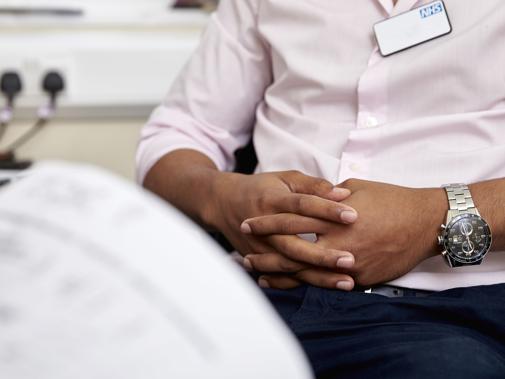Since COVID-19 started to spread through the population back in March, general practice has transformed and shifted to meet the new needs of patients across Wales.
GP practices have continued to open throughout the pandemic. But if you’ve tried to make an appointment at your local surgery lately, you might have been offered a video or telephone consultation, designed to give you that same quality of NHS service that you’re used to – remotely.
Face-to-face appointments were limited and reserved for patients that absolutely had to be seen in person – as much to protect other patients as the staff that run our surgeries.
Self-isolation policies have meant that many teams have had high levels of staff absence, yet primary care has stayed flexible and practices across Wales have opened voluntarily over bank holidays to make sure services for patients are protected and out of hours is supported.
In adapting their premises for ‘the new normal’, many practices have shouldered the burden themselves, purchasing new technology and trying to provide cover for shielding staff at their own expense. It’s not reasonable for practices to face financial penalties for making adaptions in an attempt to continue to provide high quality care to their patients.
The BMA GPs committee continues to make this case to health boards and Welsh Government as we seek a solution.
At times, guidance was confused and sometimes conflicting. This meant that some GPs started to carry around ‘Covid files’; files that contained all of the latest information, as and when it was announced, to make sure we had the right details at hand. Adapting quickly to new ways of working, GP surgeries have excelled under some very tough conditions.
Although the number of people we typically see in a day had decreased at the beginning of the pandemic, in practice, we found that remote consultations took far longer and were more complex than usual owing to the number of questions we need to ask to get the appropriate information and make the correct diagnosis.
To make sure nobody slipped through the cracks, we would often ask for photographs to support the virtual appointment. The added complexity of these new ways of working put strain on our already limited teams and overall, GPs were as busy during the pandemic as before.
111 calls, which have soared during lockdown, are also often directed to their local GP surgery for a further consultation – a fact which is often lost when we’re discussing primary care.
Looking ahead, my colleagues across healthcare are wondering what the future will hold. It seems inevitable that the technological leaps we’ve seen in our GP surgeries are here to stay, where they can be used appropriately, and it seems unlikely we’ll be able to have lots of patients in a waiting room at once any time soon.
We can’t dismiss the possibility of a second wave and for those patients we need to see in person –babies for their vaccinations, cancer patients and the like – it’s so important that our surgeries stay safe and ‘Covid free’. Regular and repeat testing of staff across the NHS will help with this, as will the contact tracing system for the wider population.
Wherever we are nationally in a year’s time, and whatever further challenges primary care will be asked to tackle, GPs and their clinical teams will always remain available to patients, in every way we can be.
Phil White is chair of BMA Cymru Wales’ GPs committee
This article first appeared in the Western Mail in July 2020

